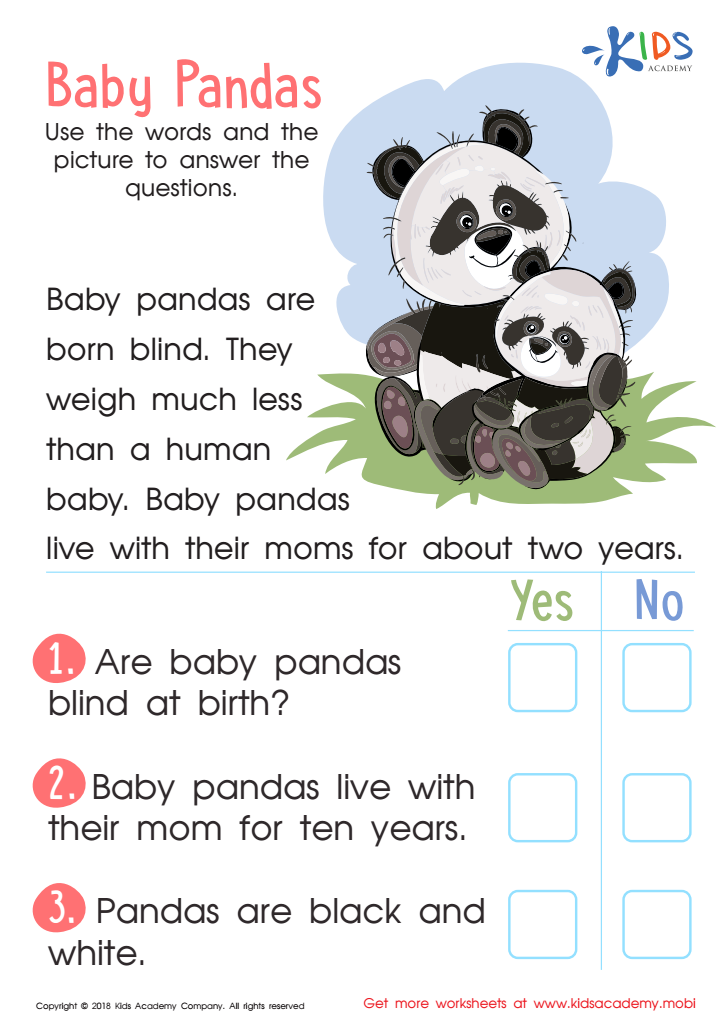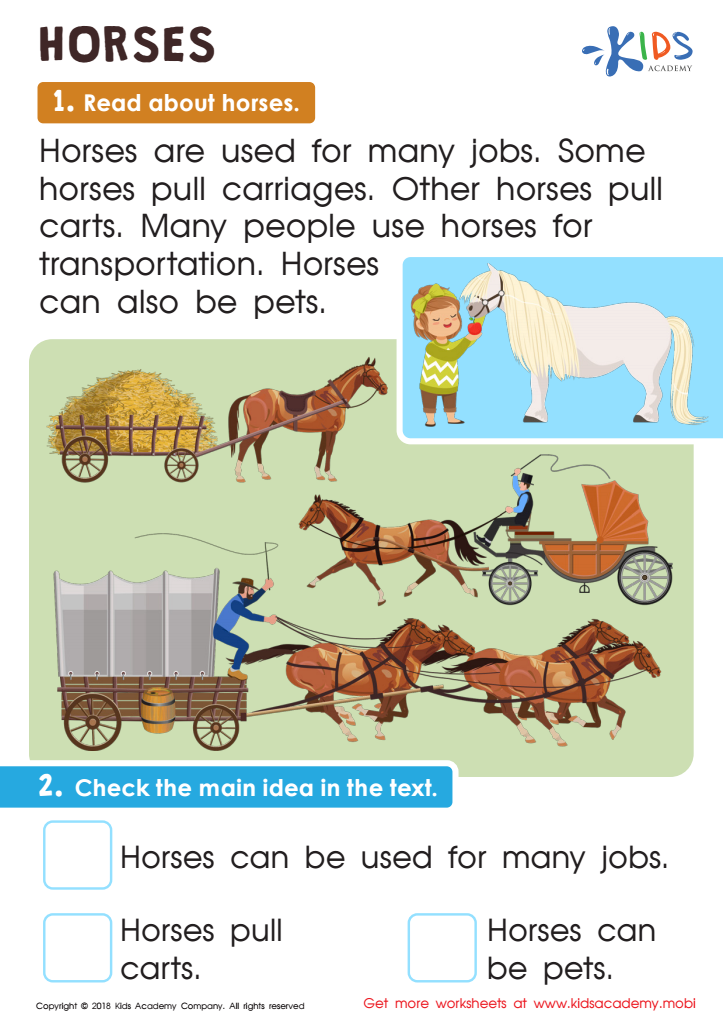Fine Motor Skills Reading Non-Fiction Worksheets for Ages 4-8
3 filtered results
-
From - To
Enhance your child's learning experience with our Fine Motor Skills Reading Non-Fiction Worksheets, designed specifically for ages 4 to 8. These engaging worksheets combine the joy of reading with essential fine motor skill development, offering fun activities that promote hand-eye coordination and dexterity. Young learners will explore captivating non-fiction topics while practicing activities such as tracing, cutting, and coloring. Each worksheet features age-appropriate content, ensuring children not only improve their reading comprehension but also build vital fine motor skills essential for everyday tasks. Perfect for at-home learning or classroom use, our resources support early education in an enjoyable, interactive way.


More Octopus Facts Worksheet


Baby Pandas Worksheet


Horses Worksheet
Fine motor skills are crucial for developing a child's ability to perform tasks that require hand-eye coordination, dexterity, and control. For children aged 4-8, these skills support everyday activities like writing, drawing, and self-care routines. Parents and teachers should prioritize nurturing fine motor skills as they exponentially enhance cognitive development and early literacy.
Reading non-fiction texts can be particularly beneficial at this stage, as they introduce children to real-world concepts and vocabulary. Engaging with non-fiction can inspire curiosity and encourage children to ask questions about the world around them, which fosters both fine motor skills and analytical thinking. Activities like cutting out shapes from non-fiction illustrations or creating matching games using facts from their readings promote hand-eye coordination.
Moreover, at this developmental stage, children often learn through play; incorporating fine motor activities related to non-fiction themes, such as crafting or assembling, can reinforce their understanding of the content while honing their skills. By caring about the intersection of fine motor development and reading, parents and teachers empower children to become more adept learners and explorers, ultimately laying a strong foundation for their future educational success. Cultivating these skills now fosters independence, confidence, and a love for learning.
 Assign to My Students
Assign to My Students
















